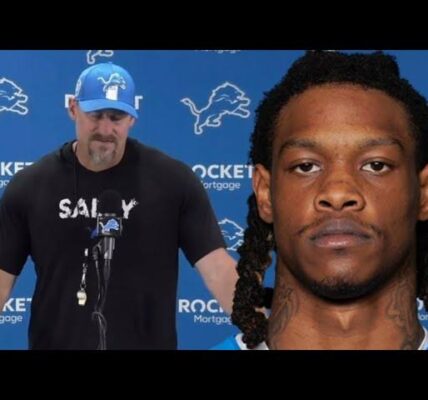During the podcast, Holmes didn’t hide how he felt. Though he expressed genuine happiness for Johnson on a personal level, the GM admitted the move hit harder because of where Johnson ended up: a division rival the Lions face twice each season in the NFC North.
“You know, there were several jobs open during that cycle, and so…I knew he had a meeting with Chicago, but he had also interviewed with many other teams. So I really wasn’t sure where he’d land. I actually thought Chicago might be the least likely spot…but no, I didn’t know for sure until he took the job, and we had a short talk before he left. I’m really happy for him. He’s a great coach, and they got a good one up there, but yeah, it’s still kind of like, ‘Man, why Chicago?’”
Johnson’s exit leaves a notable void on Detroit’s coaching staff. Under his leadership, the Lions developed into one of the league’s top offenses, ending both the 2023 and 2024 seasons ranked in the top five in total yards.
Now the Bears are set to benefit from Johnson’s presence, and with Detroit also losing Pro Bowl center Frank Ragnow to retirement, the balance of power in the NFC North could shift slightly in Chicago’s favor.
For Chicago, hiring Johnson may mark a turning point for the organization. After years of lacking offensive identity, they finally have a coach who can craft and manage a modern, high-powered offense. Johnson’s success wasn’t just in schemes—it came from culture, development, and unlocking talent. That’s exactly what Chicago has long needed.
Johnson now takes over a young and promising offense, led by No. 1 overall pick Caleb Williams. Based on minicamp reports, he already seems to know how to elevate the sophomore quarterback’s skill set.
Still, it won’t be easy for Johnson and the Bears in the NFC North. The Lions, even after key losses, remain formidable. Plus, the Packers and Vikings are always competitive.
If Johnson meets expectations, Chicago may finally have the coach to turn things around—and give Holmes even more reason to be annoyed.




